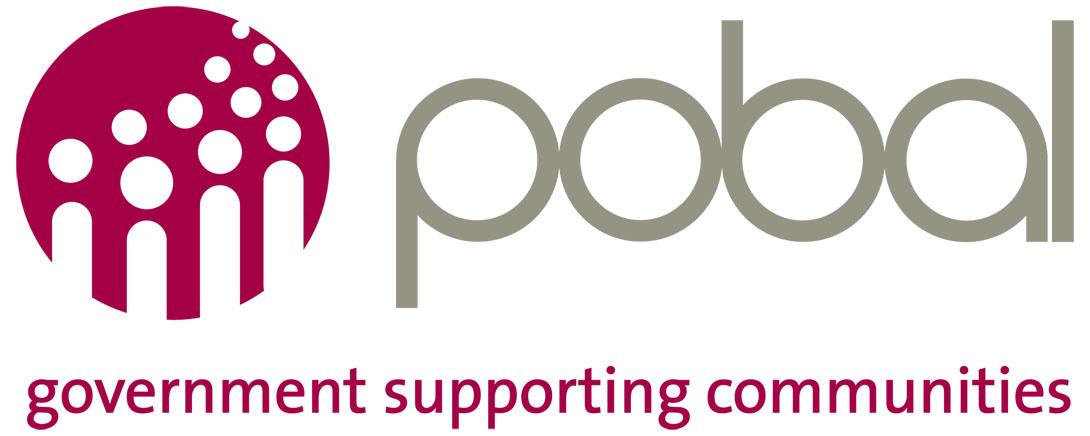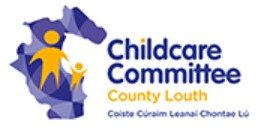TUSLA (Child and Family Agency) tips for parents click link below:
Tips for parentsTusla – Child and Family Agency
What to expect from Early Years Service click on link below:-
EYI-GDE30.3_What_to_expect_from_an_early_years_service_.pdf (tusla.ie)
Aistear Siolta Practice Guide click link below:-
1. Types of Childcare
Sessional: Means a pre-school service offering a planned programme to pre-school children for a total of not more than 3.5 hours per session. Services may offer a morning and/or an afternoon session. Services covered by the above definition may include pre-schools, playgroups, crèches, Montesori pre-schools, naíonraí, notifiable childminders or similar services which generally cater for pre-school children.
Part-Time Day Care: A part-time day care service refers to a programme for children over 3.5 hours and less than 5 hours per day. The service must provide the same physical environment, including rest, play and sanitary facilities, as for full day care. Services covered by the above definition may include pre-schools, playgroups, crèches, Montesori pre-schools, naíonraí, notifiable childminders or similar services which generally cater for pre-school children.
Full Day Care: A full day service refers to programme of activities for children for more than 5 hours per day. A full day service may include sessional and part-time services and School-Age Childcare Services for children attending primary school. Where a full day care service also caters for children who do not attend on a full day basis, the adult/child ratio and group size for sessional services should apply.
School Age Childcare: School Age Childcare refers to centre-based services for school aged children from 4-12 years which operate during one or more of the following periods: before school – after school – during the school holidays.
Childminders: Childminding services refer to care for children within a Childminders home. A Childminding service may include sessional and part-time services and School-Age Childcare services for children attending primary school.
Pre-school service in a Drop-in-Centre: A pre-school service offering day care which is used exclusively on an intermittent basis. This refers to a service where a pre-school child is cared for over a period of not more than two hours while the parent or guardian is availing of a service or attending an event. Such services are mainly located in shopping centres, leisure centres or other establishments as part of customer/client service.
Temporary pre-school service: A pre-school service offering day care exclusively on a temporary basis. This refers to a service where a pre-school child is cared for while the parent or guardian is attending a once-off event such as a conference or a sports event.
Overnight pre-school service: A service in which pre-school children are taken care of for a total of more than 2 hours between the hours of 7pm and 6am except where the exemptions provided in Section 58L of Part 12 of the Child and Family Agency Act 2013 apply.
2. What is Aistear?
Aistear is the national curriculum framework for the education and care of children from birth to six years in Ireland, published by the National Council for Curriculum and Assessment (NCCA). An early childhood service that follows the Aistear curriculum will ensure that your child is exposed to meaningful and appropriate learning experiences and opportunities. Aistear will help your child to grow and develop as a competent and confident learner through relationships, communication, exploration and play. Curriculum includes all of the experiences, activities and events – planned and unplanned – that happen in an early years setting.
Learning opportunities are planned and organised under the following four themes:
Well-being; Identity and Belonging; Communicating Exploring; and Thinking….
The theme of Well-being is about the development of children. It has two main elements: psychological well-being (including feeling and thinking) and physical well-being. Children’s relationships and interactions with their families and communities contribute significantly to their sense of well-being. The theme of Identity and Belonging is about children developing a positive sense of who they are, and feeling that they are valued and respected as part of a family and community. The theme of Communicating is about children sharing their experiences, thoughts, ideas, and feelings with others with growing confidence and competence in a variety of ways and for a variety of purposes. The theme of Exploring and Thinking is about children making sense of the things, places and people in their world by interacting with others, playing, investigating, questioning, and forming, testing and refining ideas.
How Aistear works
As the name implies, education is a lifelong journey that can take many different routes. Therefore, the framework does not prescribe any one programme or curriculum. Rather it establishes the shared principles and themes which must underpin whatever curriculum practitioners and teachers choose to use. Aistear is designed to support parents, early childhood practitioners and teachers in planning for ad providing enriching, challenging and enjoyable learning opportunities for children.
In supporting children’s early learning and development Aistear
- identifies what and how children should learn, and describes the types of experiences that can support this
- makes connections in children’s learning throughout the early childhood years and as they move from one setting to another
- supports parents as their children’s primary educators during early childhood, and promotes effective partnerships between parents and practitioners
- complements and extends existing curriculums and materials
- informs practice across a range of settings, disciplines and professions, and encourages interdisciplinary work.
Aistear is based on 12 principles of early learning and development. These are presented in three groups:
1. The first group concerns children and their lives in early childhood:
- the child’s uniqueness
- equality and diversity
- children as citizens.
2. The second group concerns children’s connections with others:
- relationships
- parents, family and community
- the adult’s role.
3. The third group concerns how children learn and develop:
- holistic learning and development
- active learning
- play and hands-on experiences
- relevant and meaningful experiences
- communication and language
- the learning environment.
3. What is Síolta?
Síolta is the National Quality Framework for Early Childhood Education. It is designed to support the improvement of quality across all areas of practice in early childhood care and education settings for children aged birth to six years. Síolta covers everything from the way a service is managed and operated, to the ways that parents are involved, and the ways in which children’s development and education are provided for.
The name Síolta is the Irish word for seeds, it was chosen to reflect the potential of childhood.
Principles of Síolta
The framework is based on 12 Principles which guide the way we work in ECCE services. They guide how we organise our services, how we relate to children, families and to each other.
Standards of Síolta
Síolta also establishes 16 Quality Standards which will guide the way in which all early childhood care and education services work and develop in Ireland. The Standards cover all aspects of early childhood care and education delivery and practice.
Síolta Quality Assurance Programme
Síolta also serves as a Quality Assurance Programme. ECCE services participating in this programme work through all 16 standards of Síolta using them to reflect on and improve the quality of their services. They are then validated by the Department of Education and Skills (DES).
For further information is available at www.siolta.ie
You can also download a Síolta Information leaflet, specifically for parents, which was designed by the former Centre for Early Childhood Development and Education (CECDE).
4. Choosing a Quality Service
There are a number of features that you should consider when choosing an early years setting for your child. Below are some indicators of quality which will help to guide you in making the right choice for your child.
STAFFING / POLICIES
Is the service registered with TUSLA, the Child and Family Agency?
Does the atmosphere in the setting feel caring, safe and friendly?
Have all staff been vetted e.g. Garda Vetting, references, Police Vetting (if they have lived abroad)?
Do the staff have an appropriate level of experience, training and qualifications? If so is documentary evidence of these qualifications visible?
Is a copy of the setting’s policies and procedures available?
What are the adult/child ratios and do they comply with the regulations?
Does the setting have definite policy guidelines on settling children into the service that allow the parent to stay with their child until they are both happy?
PREMISES
Is the premises well maintained, clean and hygienic, bright and well ventilated?
FOOD
Are the meals and snacks healthy and nutritious?
Where the setting provides the food, is there a varied menu available?
INCLUSIVE
How can the service cater for a child with special or additional needs?
In what ways does the setting promote a strong sense of identity & belongings for everyone?
SAFETY
Is there an adequate number of adults available to supervise and care for your children?
Does the service have a Child Safeguarding Statement?
What procedures are in place for medical emergencies?
Is there adequate facilities are provided for the safe and hygienic preparation and storage of food.
How does the setting manage children’s behaviour? – Is there a clear and accessible policy on managing children’s behaviour?
Are there safe sleeping/resting arrangements in place for children?
Are there enough toilets and washing facilities for the children?
Is there a system in place to prevent unauthorised access to the service and to prohibit a child leaving the premises unsupervised.
CURRICULUM & RESOURCES
Are links to Aistear (the National Curriculum Framework for 0-6 year olds) and Síolta (National Quality framework for 0-6 year olds) visible?
Are there lots of natural materials and equipment that encourage children to play and to explore, and to use freely in their own way – (e.g. particular access to sand, water and blocks)
Is all of the equipment, toys, and materials appropriate for the ages of the children attending and their developmental needs?
What kinds of choices are children able to make?
How much time is given to play & exploration?
How often can the children play outdoors?
PARTNERSHIP WITH PARENTS
How will the setting keep parents informed of their child’s progress?
Can a parent/guardian visit anytime?
If I have a concern, who do I contact?
ENVIRONMENT
Is there a quiet area available if a child wants to relax?
FURTHER READING
Barnardos has produced a guidebook to assist parents in choosing an early years service for their child which can be found at:
https://shop.barnardos.ie/publications/221-quality-early-years-care-and-education.html
TUSLA (Child and Family Agency) has tips for parents at:
http://www.tusla.ie/services/preschool-services/tips-for-parents
Louth County Childcare
Committee Limited


Louth County Childcare
Committee Limited
Tel: 042-9336364
Email: [email protected]



